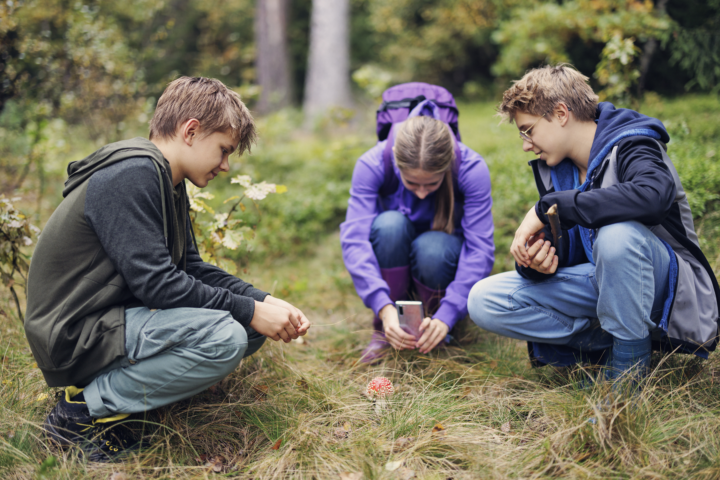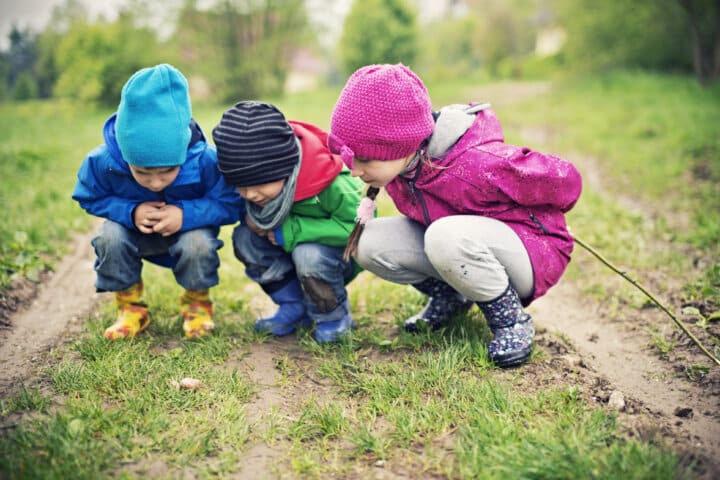En Meningsfull Historia? : Didaktiska perspektiv på historieförmedlande museiutställningar om migration och kulturmöten
Cecilia Axelsson
Professor Lars Olsson, biträdande handledare Lena Fritzén, Växjö universitet
Fil. dr Carina Rönnqvist, Umeå universitet
VxU – Växjö universitet
2009-02-27
En Meningsfull Historia?: Didaktiska perspektiv på historieförmedlande museiutställningar om migration och kulturmöten
Historiska institutionen
En Meningsfull Historia?: Didaktiska perspektiv på historieförmedlande museiutställningar om migration och kulturmöten
Museer är offentliga arenor där lärande och meningsskapande sker. I Cecilia Axelssons avhandling En Meningsfull Historia? Didaktiska perspektiv på historieförmedlande museiutställningar om migration och kulturmöten undersöks och diskuteras museernas roll som folkbildare och som utökade klassrum för skolan samt deras förmedling av historia. I avhandlingen undersöks och diskuteras de två utställningarna Afrikafararna och Kongospår närmare.
Både innehållet i utställningarna och själva förmedlingsprocessen analyseras genom genus-, klass- och etnicitetsperspektiv. Producenter, museiföreträdare, museipedagoger, lärare och elever intervjuas om sina uppfattningar av historieförmedlingen. Utställningarnas innehåll och museernas förmedling diskuteras slutligen mot bakgrund av en demokratisk utbildningskonception.
Undersökningen visar hur ekonomiska förutsättningar och tillgång till historiskt källmaterial förvisso och på ett väldigt påtagligt sätt påverkar vilka historier som förmedlas på museerna. Ett av avhandlingens resultat är dock att det till än större grad är de pedagogiska övertygelserna och historiesynen hos museiföreträdarna, uttalade eller mer omedvetna, som lägger fast ramarna för hur historia förmedlas i utställningarna. Dessa två faktorer framstår som avgörande då det sätt historia förmedlas på på museerna inte visar sig korrespondera riktigt med intentionerna och målen att verka för demokratiska värderingar som jämlikhet och demokratisk handlingsberedskap.
Undersökningen visar vidare hur de aktuella utställningarna förmedlar underordningsmönster och asymmetriska relationer mellan kvinnor och män och mellan svenskar/skandinaver och afrikaner. Gränsdragningarna mellan Oss och De andra är stundom mycket tydliga. En av utställningarna erbjuder dock mer utrymme för reflektion och eget meningsskapande än den andra, då den problematiserar förekomsten av afrikanska kvarlevor i Skandinavien och på grund av det faktum att det finns fler berättelser och röster i utställningen.
Intervjuerna med lärare och elever visar slutligen att besöken i utställningarna ofta är enstaka tillfällen som sällan införlivas i elevernas utbildning i ett längre tema eller perspektiv. Flera av eleverna tog okritiskt till sig museernas förmedling, medan andra blev provocerade och utmanade. Eleverna hade dock få möjligheter att diskutera dessa erfarenheter vare sig i museerna eller i skolan. Flera av avhandlingens resultat pekar alltså på att förmedlingen av historia i utställningarna inte kan beskrivas som att de svarar upp mot kraven i en demokratisk utbildningskonception.
Abstract in English
This thesis concerns the mediation of history in a public arena in society, namely in historical exhibitions in museums. The foci of the thesis are exhibitions on migration history, cultural encounters, Us and the Others , and in particular how relations based on the principles of class, gender and ethnicity are mediated. The research concerns two exhibitions ”Afrikafararna” (The Travellers to Africa) and ”Kongospår” (Traces of Congo).
In this thesis museums are viewed as arenas for public education and meaning-making. It explores how the historical contents as well as the forms of mediation in the exhibitions correspond to the task of promoting democracy that has been assigned to Swedish museums. This task is expressed in the intentions of the respective museums, in the general policies on culture and also in the policy documents for schools. Therefore the thesis also explores how pupils and teachers understand the mediation of history and use the museum as a source for learning.
Exhibitions are regarded in this thesis as mediation processes of history. Three distinct phases can be seen in this process the phase of production, the phase of mediation and the phase of reception. People connected to the different phases, such as curators, producers, museum educators, and pupils, have been interviewed. These interviews show how conditions, convictions and scope for action influence how the stories of migration and cultural encounters are told and understood. The contents of the exhibitions are analysed from a perspective of class, gender and ethnicity. Furthermore, the limitations and possibilities for the visitors to intensify their historical consciousness are discussed.
The study shows how economic conditions and access to historical source material influence the way history is mediated, but also, and to a very large extent, convictions on pedagogy and concepts of history among museum staff. The latter two are determining factors when it is made clear that the way the historical source material is used results in the fact that history is mediated in a way that does not correspond to the intentions and goals to promote democratic values, such as equality, and active democratic readiness for action.
The study shows that the exhibitions in question mediate patterns of subordination and asymmetrical relations between women and men and between Swedes/Scandinavians and Africans in their mediation of history. There are sometimes very distinct lines between Us and the Others . One of the exhibitions offers more space for individual meaning-making and reflection than the other, however, because of its problematization of the occurrence of African artefacts in Scandinavia and because there are more stories and more voices in the exhibition.
The interviews with teachers and pupils show that the visits to the exhibitions are often isolated events that are rarely incorporated into the students education in a prolonged theme or perspective. Several students uncritically accepted the mediation in the exhibition, others were provoked and challenged, but the students had little opportunity to discuss these experiences in either the museum or in school. In summing up, several of the results of the analysis show that the mediation of history in the exhibitions cannot be described as corresponding to the demands of a democratic conception of education.
Relaterade länkar

Biologi
 Åk 7–Vux
Åk 7–Vux Hållbar utveckling i förskolan
 Fsk
Fsk 




